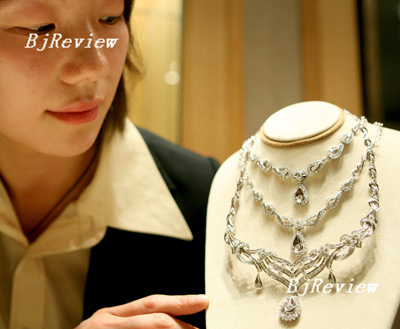
Although it's still a month away from the traditional Chinese lunar new year-Spring Festival-Zhang Liang has already been making serious plans for holiday travel.
Beijing born and bred, Zhang usually takes a few days during this time to travel.
In the past two years, Zhang went to Singapore and Thailand. This year, Zhang, yearning to relive his childhood experience of a traditional Spring Festival, plans to go to the countryside in Shanxi Province, about 850 km away from Beijing. There he expects to see every household lighting a campfire and unrestricted lighting of fireworks.
He estimates the trip will cost perhaps 5,000 yuan and he's ready to spend it freely on things like petroleum and village souvenirs.
Meet China's new middle class. Constrained previously by family obligations to travel home, these new consumers are striking out on their own to see the country and the world, spending whatever is necessary to become in a sense international citizens for the first time.
It was reported that during the 2006 Spring Festival, millions of people left Beijing, which became rather deserted compared with the boisterous scene in non-festival time.
Chinese consumption has soared with these long festivals and holidays. Each of the three seven-day holidays-Labor Day, May 1-7; National Day, October 1-7; and Spring Festival, which varies in date year by year-is named "golden week," reflecting the surging retailing volume of social consumption.
Currently, domestic consumption accounts for a small portion of China's GDP. But these golden weeks are considerably helping to boost domestic consumption. Some people have even suggested that the number of golden weeks should be extended.
Certainly consumers like Zhang are helping to drive consumption growth, which many hope will really take off in 2007 and beyond.
Leading consumers
Although the low-income group has government policy support, the middle class like Zhang Liang is actually the main force in China's consumer market.
At the beginning of 2005, the National Bureau of Statistics released this conclusion based on a survey, "An annual income of 60,000-500,000 yuan is a criterion to delimit urban middle-income households (calculated by an average of three persons per household)." It's generally accepted as a criterion to define the middle class in China.
Ma Rong, a sociology professor at Peking University, said that according to this criterion, about 20 percent of Chinese households become middle class. Generally, Chinese middle class comprises people of the 30-45 age group, with most of them having a university degree. In 2007, more households will likely to join this middle class group.
As a result, instead of just the bare necessities, domestic consumers are expected to buy more services and products involving wealth management, autos, real estate, brand commodities, luxuries, education, communications and recreation.
Zhang Liang is obviously one of these important new consumers in China. As China's stock market matures, Zhang doesn't deposit his daily savings but uses them to buy stocks.
In fact, many Chinese are now saving less.
According to the People's Bank of China, in October 2006, renminbi savings deposits dropped 7.6 billion yuan compared with the previous month, decreasing for the first time since June 2001.
In 2007, renminbi business will open to all foreign financial institutions, which will bring China's high and middle-income earners more money managing consumption channels and further stimulate their consumption.
| 